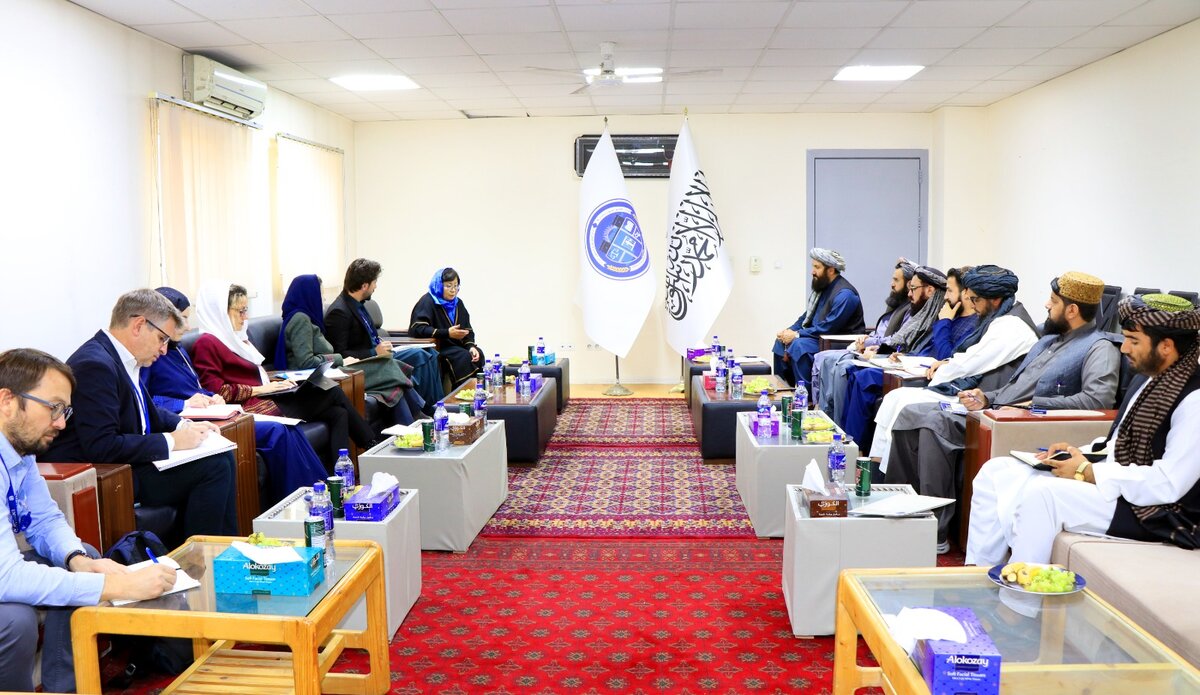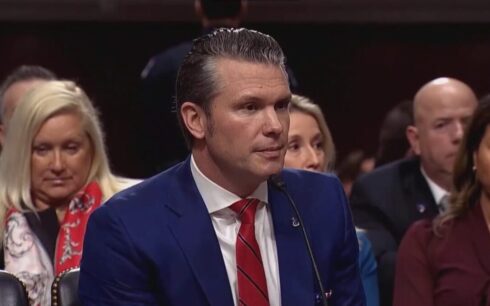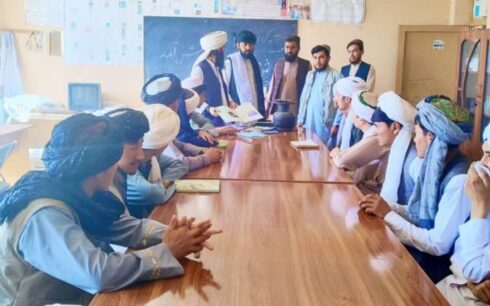Roza Otunbayeva, head of the United Nations Assistance Mission in Afghanistan (UNAMA), has expressed concern that vulnerable prisoners, particularly women, in Afghanistan are not receiving adequate legal services, according to a UNAMA statement.
During a meeting with Mohammad Yousuf Mistry, the Taliban’s head of prison administration, Otunbayeva highlighted the challenges posed by the high number of detentions and long-term sentences issued by Taliban courts. These issues, she noted, create significant obstacles to ensuring “criminal justice” and managing the country’s prison facilities.
In a statement, UNAMA said that Otunbayeva also visited Kabul’s Pul-e-Charkhi prison and “welcomed the Taliban’s cooperation in granting U.N. human rights teams access to detention centers across the country”.
According to the Taliban, Pul-e-Charkhi prison currently holds 5,000 inmates, with the number of prisoners continuing to rise. Otunbayeva emphasized the need for more support to safeguard prisoner rights within the judicial system, including legal aid, faster trials, and alternatives to incarceration.
“I appreciated the opportunity to meet with women detainees and hear directly about their issues, particularly the lack of legal assistance. More needs to be done to uphold detainee rights, including prompt trials and legal support,” Otunbayeva said. “We must also address the root causes of over-incarceration.”
The Taliban prison officials requested more U.N. assistance in areas like healthcare, nutrition, education, and vocational training to improve prisoners’ prospects upon release.
However, Otunbayeva warned that international support for Afghanistan is waning, largely due to the Taliban’s ongoing restrictions on women and the introduction of new laws such as the “Promotion of Virtue and Prevention of Vice” decree, which has raised concerns among humanitarian organizations.
In a recent interview with Amu, the deputy head of the Taliban’s prison administration, Habibullah Badar, revealed that 23,000 inmates are held within the Taliban’s prisons.
He also said that between 1,000 to 1,500 inmates are accused of “theft and abducting” and are waiting for amputation of their hands.
Between 500 to 600 are sentenced to execution while another nearly 400 are sentenced to Qisas.
On the other hand, in a report, the UN revealed that it has documented more than 1,600 cases of human rights violations committed by the Taliban in Afghanistan during arrests and detentions of people, urging the Taliban to stop torture and protect the rights of detainees.
Nearly 50% of the violations consisted of “torture and other cruel, inhuman and degrading treatment,” the U.N. Assistance Mission in Afghanistan said in a report of last year.
Last month, addressing a ceremony in Kandahar, the Taliban leader Hibatullah Akhundzada acknowledged the existence of torture and beating of the detainees in the Taliban’s prisons.
However, he claimed that whenever such reports have been released, the perpetrators have been dismissed.
In July this year, a joint report by The Guardian and Rukhshana Media claims that a female Afghan human rights activist has alleged she was gang-raped in a Taliban prison.
According to the report, the Taliban filmed the assault and later sent the video to the victim, warning her to remain silent or face public exposure of the footage.





